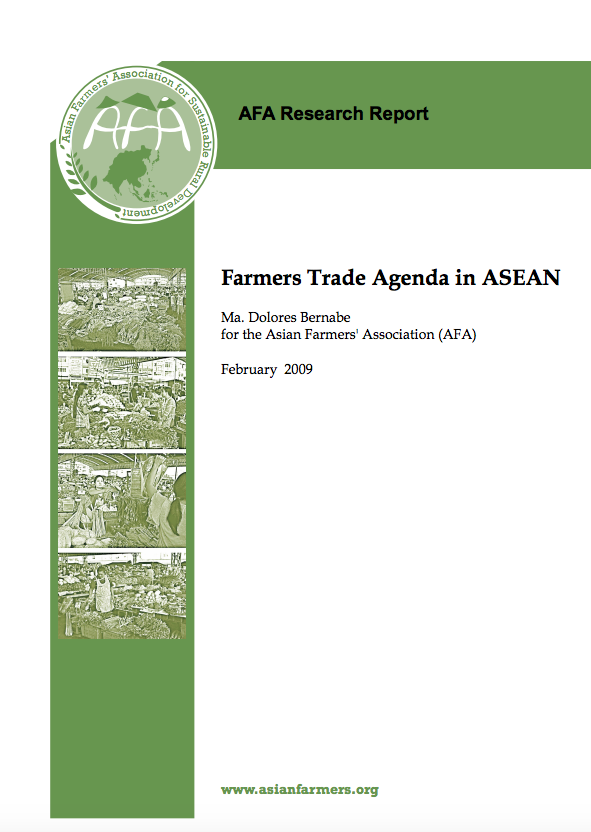Farmers Trade Agenda in ASEAN
This research is intended to help contribute to this articulation process by identifying and consolidating small farmers' trade agenda in five countries, namely Cambodia, Indonesia, the Philippines, Thailand and Vietnam. These countries represent a good mix of both net agricultural exporters and importers, providing the paper with a balanced perspective of looking at trade and its impact on small farmers. The agenda of small farmers in these countries formed the bases for the formulation of their trade agenda in ASEAN. The research is divided into three parts.










